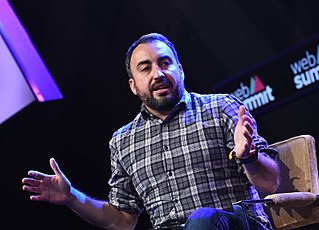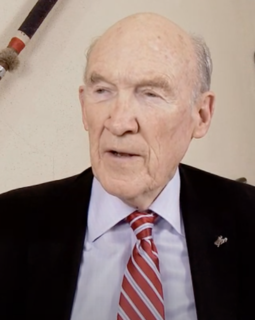A Quote by Rebecca MacKinnon
When Tim Berners-Lee invented the computer code that led to the creation of the World Wide Web in 1990, he did not try to patent or charge fees for the use of his technology.
Related Quotes
I'm not a politician, and I do not think I am as effective in this way as people who actually prepare for it - is to focus on technical reform, because I speak the language of technology. I spoke with Tim Berners-Lee, the guy who invented the World Wide Web. We agree on the necessity for this generation to create what he calls the Magna Carta for the Internet. We want to say what "digital rights" should be. What values should we be protecting, and how do we assert them.
Tim Berners-Lee, the 44-year-old English physicist who created the World Wide Web, is precisely the kind of hero that a relatively simple invention with profound social and economic consequences should lay claim to. He is not just creative but democratic, diplomatic, polite and generous with credit and praise.
I think there certainly was a milestone in the '90s with regards to the Internet achieving critical mass. There were several magical factors that came together: the creation of HTML by Tim Berners-Lee, the drop in the price of communications, and all the PCs out there that you could put this software into.
Next came the Patent laws. These began in England in 1624; and, in this country, with the adoption of our constitution. Before then [these?], any man might instantly use what another had invented; so that the inventor had no special advantage from his own invention. The patent system changed this; secured to the inventor, for a limited time, the exclusive use of his invention; and thereby added the fuel of interest to the fire of genius, in the discovery and production of new and useful things.
The biggest challenge is self-financing 100% of everything. Recording costs, studio time, engineer fees, travel costs are all a part of the creation process. Then after the creation, there are producer fees, mixing, mastering, photo shoots, artwork, packaging, artist feature fees, legal fees, clearances, and so on that must be covered before any music can officially be released to the public.
New information and communications technologies can improve the quality of life for people with disabilities, but only if such technologies are designed from the beginning so that everyone can use them. Given the explosive growth in the use of the World Wide Web for publishing, electronic commerce, lifelong learning and the delivery of government services, it is vital that the Web be accessible to everyone.
Computers are still technology because we are still wrestling with it: it's still being invented; we're still trying to work out how it works. There's a world of game interaction to come that you or I wouldn't recognise. It's time for the machines to disappear. The computer's got to disappear into all of the things we use.






























